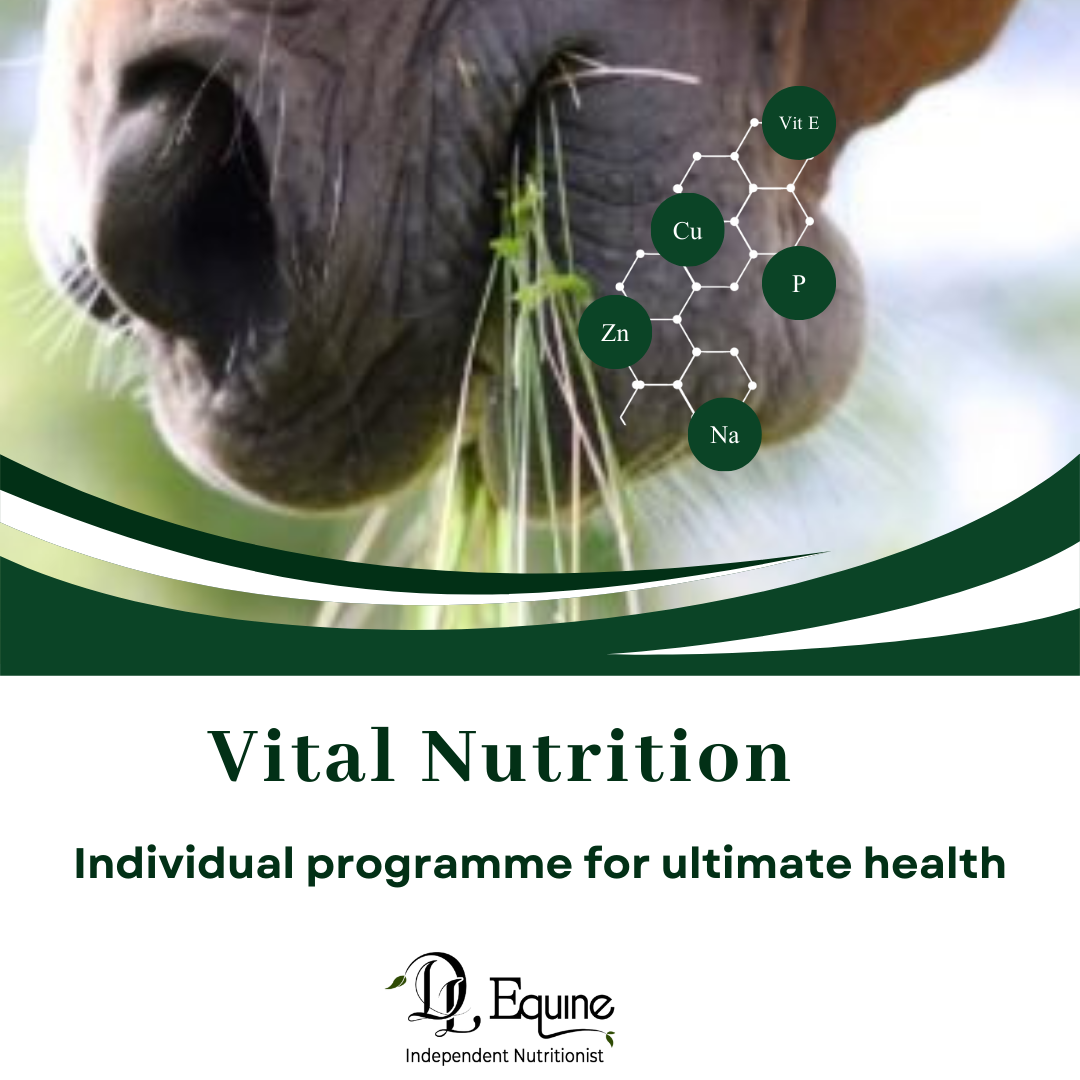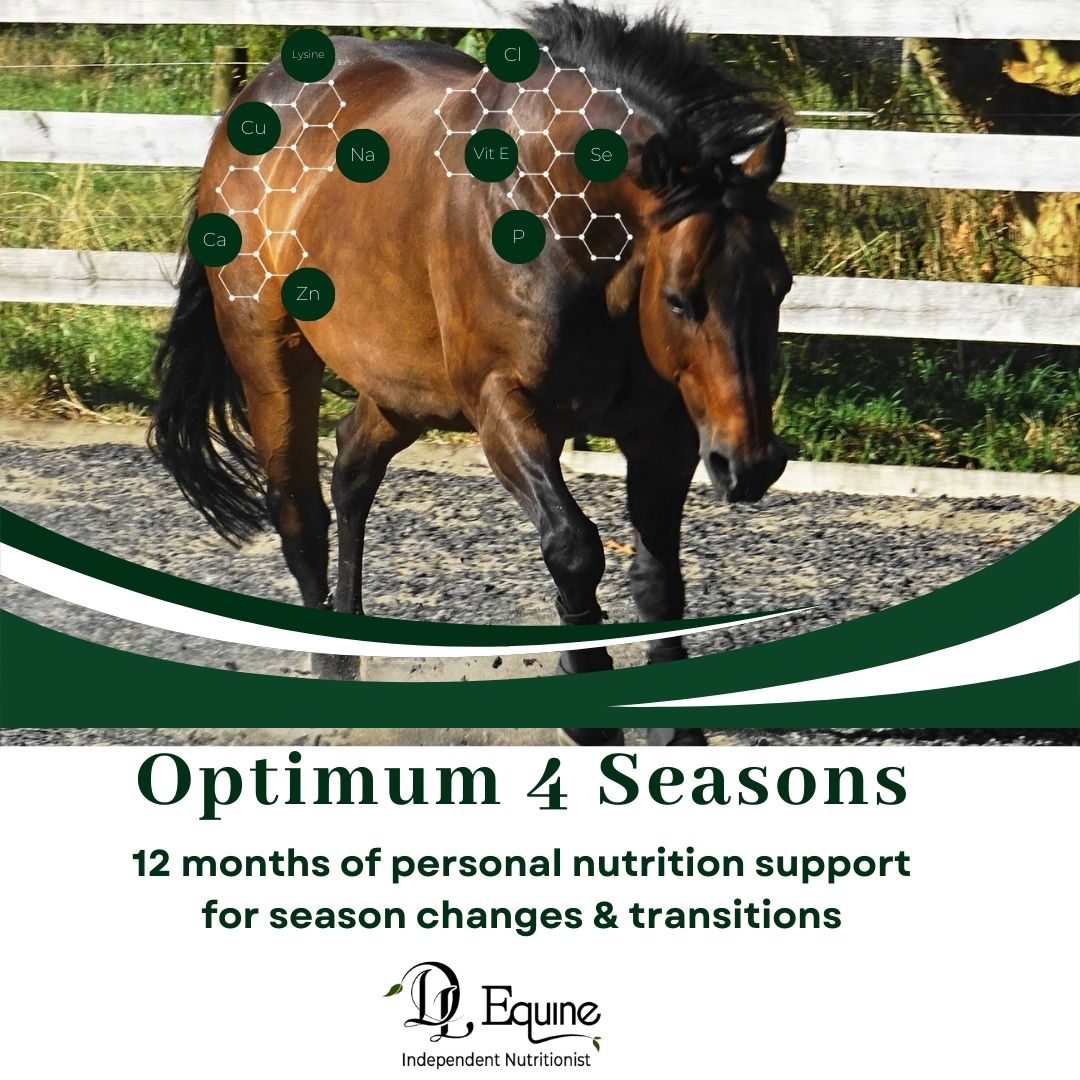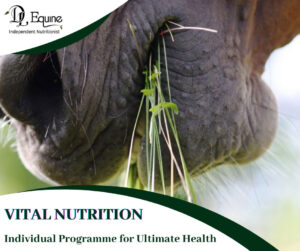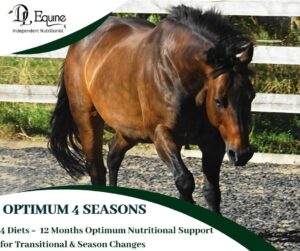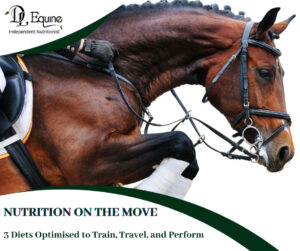Hey there can you believe its winter already?
As I write this the sun has just disappeared in the very early afternoon now ;( but the reality is we were late getting into winter and some areas just don’t have grass growth and this means less and more expensive hay.
It is definitely that time of year where we look to our golden oldies and start to worry how they will keep condition over the colder months.
So this month I will share a few nutrition tips this newsletter geared towards helping keep our aged horses well, but also horses of any age.
First there are many things that I consider when thinking about feeding an aged horse:
Age; How old is senior?
A horse can be considered aged at any time over 15years of age. Of course it depends on the horse, some breeds differ and some individuals break the mould. Your horses genetics and health history will have a big impact on how well they age.
Body Condition Score: As I spoke about in last month’s newsletter, NOW is the time to be thinking of your horses body condition score. Check it and assess it regularly. See the Henneke BCS system.
Is your aged horse between a 5 and 6? Or do they need to lose weight or gain it? This will help you plan how much to feed.
It does get difficult in the winter if its raining or dark when you see your horse, make the time to take that cover off every week and check them for condition and adjust their feed accordingly.
Health issues: PPID, EMS? If you’re your horse has a health problem such as PPID or is an Equine Metabolic Syndrome horse, you must take care with the sugar in the grass AND hay And feeds.
Altogether these must stay under the 12% mark. The very best way to know this is to get a pasture analysis and come and see me for a diet formulation, that way I can be very accurate and keep your loved one healthy longer lived.
Grass: Lush? Not enough? If your grass is like mine, the winters seem warmer on the whole and the grass may not drop off till much later in the year. In the meantime things will def get muddy where I live.
To save grass and also restrict access I strip grass. Back fencing will allow the grass to grow back behind the horses and also save you grass.
If you are asking why I recommend strip grazing in many cases? = I too have an older QH, a breed and age much prone to EMS issues. So access to high sugar grass must be controlled.
On top of this I need to make sure he is getting enough forage in terms of Dry Matter. 1.5 – 2% of his body weight per day. As our grass is sitting at 30% dry matter and 70% water, I need to include dry matter in his diet to keep his gut moving, and his body condition appropriate.
Recommendations are that horses should be fed a minimum of 1.5% of their bodyweight per day in forage (pasture, hay, chaff, haylage; Harris et al. 2017). This is equivalent to 1.5 kg/100 kg bodyweight (which equals 7.5 kg/day for a 500 kg horse;).
The gut:
There are two major changes to consider in aged horses:
1. Saliva production diminishes. A senior-friendly diet considers your horse’s reduced saliva production, which makes dry food difficult to chew and nearly impossible to swallow. This is really easy to manage by simply adding water to your horse’s feed; make it a bit more mushy as they say 😊.
2. Digestion efficiency may reduce. This can lead to electrolyte imbalances, weight loss and gut dysbiosis. It starts in the small intestine where your horse produces fewer digestive enzymes, potentially leading to nutrient deficiencies simply because the tissues can’t receive the nutrients from their feed.
We always need to feed the hindgut microbial population.
These microbes are responsible for digesting fibrous portions of the diet, leading to the formation of volatile fatty acids to provide your horse with calories for energy.
They are also necessary for B-vitamin production and maintaining a healthy immune function. Their numbers can significantly diminish due to several causes, (stress for all horses), things such as stomach acid reaching the hindgut because of an empty stomach or inadequate saliva production (saliva neutralizes acid), pain and mental stress, illness, antibiotics.
A sluggish metabolic rate can natural aspect of aging, often causing weight gain. So again restrict that high sugar grass and feed many and a variety of fibres.
Research has shown that feeding a variety of fibres such will keep the fibre requirements up and the gut microbes happy. So feed a number of different types of chaff, and forage along with your hay. These all help the gut populate with the right microbes and be able to digest feed properly. The result is the horse is actually using the feed you are spending your hard earned money on! Win Win.
Don’t be afraid of a commercial feed, providing it is fed in a correct amount for your horse, many of these commercial feeds are a great addition for the senior. Typically, the percent crude fiber in senior feeds is in the high teens or low 20s. This is below what a hay or chaff will be however there are benefits;
Along with the great ingredients also generally the particle size of commercial feeds is small, and this increases the relative surface area that digestive enzymes and intestinal bacteria have to work compared to the particle sizes of something like chewed hay. As a result, the nutrients in senior horse feed are likely better utilized. (but most horses still need that hay also)
Moderate amounts of fat can be a good addition for calories e.g., flaxseed oil/ flakes. ) Feed a fat instead of a grain to an EMS horse to support the steady glucose and insulin secretion post-meal.
Make sure though that you are also feeding your horse the required amount of vitamins, minerals and protein since fat is otherwise empty calories.
Teeth status? The best diet in the world wont do any good if your horses teeth aren’t taken care of. If you haven’t already this year get your horses teeth checked by a qualified equine dentist. If your older horse has less teeth and they are worn down, or your oldie is quidding, then you need to be adding easy to digest fibre into the diet. We are so lucky in NZ and Australia as we do have access to loads of fibre feeds, which we can use to help top up or even replace those fibre sources like hay when it has run out or the old horse cant chew it properly. See the super fibre feeds in the next paragraph 😉
Other Feed requirements: Older horses will also sometimes hold muscle mass better if supplemented with a high-quality protein source such as a soy, lupin or whey (what you want to supply is the three commonly limiting essential amino acids – lysine, methionine and threonine.)
Not commonly known is that fibre sources such as beet pulp and lupins also contain a decent amount of amino acids. The bonus is the huge amount of fibre they have!
Examples of great senior super fibre feeds to keep condition: Compared to Oats
| Feed | DE | Fibre | Starch |
| Sugar Beet Pulp | 11MJ/kg | 16% | 5% |
| Soybean Hulls | 10.8MJ/kg | 30% | 8% |
| Lupin Hulls | 8% | 34% | 5% |
| Oats | 12.6MJ/kg | 30% | 42% |
Rugging and temperature: One of the best animal welfare tips I can give you is ‘Don’t rug overweight horses” (unless clipped) and don’t over-rug (I know that’s not a word but it should be).
Horses have a large thermoneutral zone which means there’s a wide range between when they’ll feel cold and when they’ll feel hot, that range is between 0° and 25° Celsius.
That doesn’t mean to say that if the temperature goes below 0° Celsius your horse will automatically get cold, many horses grow thick winter coats in order to keep themselves warm and dry. Wind chill is a factor, as is snow if you are lucky enough to live down south.
Kentucky Equine Research Dr L Crandel says “Horses have several ways to keep warm in the winter months. Such mechanisms include vasoconstriction of peripheral blood vessels to divert warm blood to the horse’s core, shivering to produce heat, using less efficient metabolic pathways to produce heat, and growing thick, insulating coats,”
Horses can trap air between the hairs of their coat and their skin to create a layer of insulation, but this doesn’t work with wet hair. Providing a shelter in the paddock is a good way to help on rainy days.
Fermentation of forage in the gut not only produces energy (calories) but also heat. Ensure horses on pasture have sufficient forage to warm themselves. I.e., provide hay and fibre feeds.
Senior Horse Nutrition take away:
Feeding the right diet during winter will help keep your horses healthy and in good body condition, regardless of whether you want them to lose weight or are doing everything you can to keep the weight on.
Provide a lot and a variety of fibre sources. Sources are high energy such as beet pulp, lucerne and soy hulls and lower energy such as brown top and timothy. Forage should be the first thing to look at in a horse’s diet, even if we need them to gain weight.
Provide a good balanced mineral supplement.
Underweight senior may require extra fats such as oil in the diet and high protein feedstuffs to retain body condition.
Remember the stomach is small so feed multiple meals a day, especially if you run out of grass.
Balance again is key and each horse is an individual so feed according to their weight and level of activity.
Happy Feeding, stay warm
Dale x

